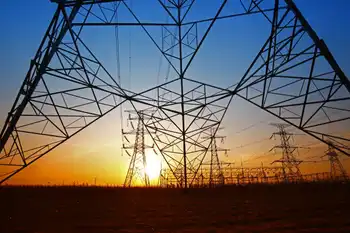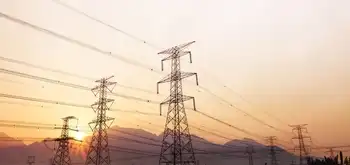U.S. on track with greenhouse goals, but too easy?
OSLO, NORWAY - Washington is sticking to goals for curbing greenhouse gases under a yardstick shunned by most of its allies as too easy.
President George W. Bush said he has no plans to toughen the targets - trimming the amount of heat-trapping gas emitted per dollar of economic output - despite speculation that he was considering a revision because of worries about global warming.
"We're meeting those targets," he said in an interview with the Wall Street Journal. "So long as we're meeting those targets... then I think we ought to pursue the current track we're on."
The U.S. goal, of an 18 percent cut in emissions per dollar of gross domestic product in the decade to 2012, is far less stringent than cuts in total emissions favored by almost all other industrial nations under the U.N.'s Kyoto Protocol.
Many experts say it would be hard for the United States not to achieve the goal - meaning that Bush will not shift to tougher limits favored by California, Arizona and seven northeastern states.
"We're on target for the status quo," said Vicki Arroyo, director of policy analysis at the Pew Center on Global Climate Change in Washington, saying that Bush's goal would take no effort since high oil prices are prompting efficiency.
"I don't think that the number 1 greenhouse gas emitter and richest economy in the world is setting the example needed - it's not enough," she said.
Bush also said he would speed up a push for alternative energies such as ethanol as part of big energy investments. Bush pulled out of Kyoto in 2001, saying that it would cost U.S. jobs and wrongly excluded developing nations until 2012.
"In general terms (emissions intensity targets) are not a good idea," said Ottmar Edenhofer, chief economist of the Potsdam Institute for Climate Impact Research in Germany.
Edenhofer said it was simpler to set a ceiling for emissions because emissions intensity is also governed by economic growth and population.
"From my point of view this is a political trick. The Bush administration says 'yes, we are doing something' but the only one who is defining an appropriate target (in the United States is California governor) Arnold Schwarzenegger," Edenhofer said.
Under the U.S. goal, emissions from power plants, factories and cars will be able to rise by 30 percent over 1990 levels - the benchmark year for cuts under Kyoto - because gross domestic product will far outstrip growth in emissions.
Kyoto obliges cuts of 5.2 percent below 1990 levels with energy savings and clean energies such as wind and solar power.
The scientific panel that advises the United Nations says that a build-up of greenhouse gases is likely to cause havoc with the climate, bringing more floods, heatwaves, spreading disease and raising sea levels by 9-88 centimeters by 2100.
Still, the U.S. yardstick gives insights into how far economies can break a link between emissions and economic growth.
Turkmenistan's energy-dependent economy is worst, spewing out 7.94 kilos (17.50 lb) of carbon dioxide per dollar of economic output in 2004, according to the International Energy Agency (IEA), which advises rich governments.
At the other end of the scale, Switzerland's services-based economy emitted just 0.18 kg per dollar.
And the United States did worse than the average among rich nations, emitting 0.54 kg of carbon dioxide per dollar of GDP in 2004 against an average 0.47 kg.
Related News

B.C. Hydro misled regulator: report
VICTORIA - B.C. Hydro misled the province’s independent regulator about an expensive technology program, thereby avoiding scrutiny on how it spent millions of dollars in public money, according to a report by the B.C. Utilities Commission.
The Crown power corporation gave inaccurate testimony to regulators about the software it had chosen, called SAP, for an information technology project that has cost $197 million, said the report.
“The way the SAP decision was made prevented its appropriate scrutiny by B.C. Hydro’s board of directors and the BCUC,” the commission found.
“B.C. Hydro’s CEO and CFO and its (audit and risk management board committee) members…




